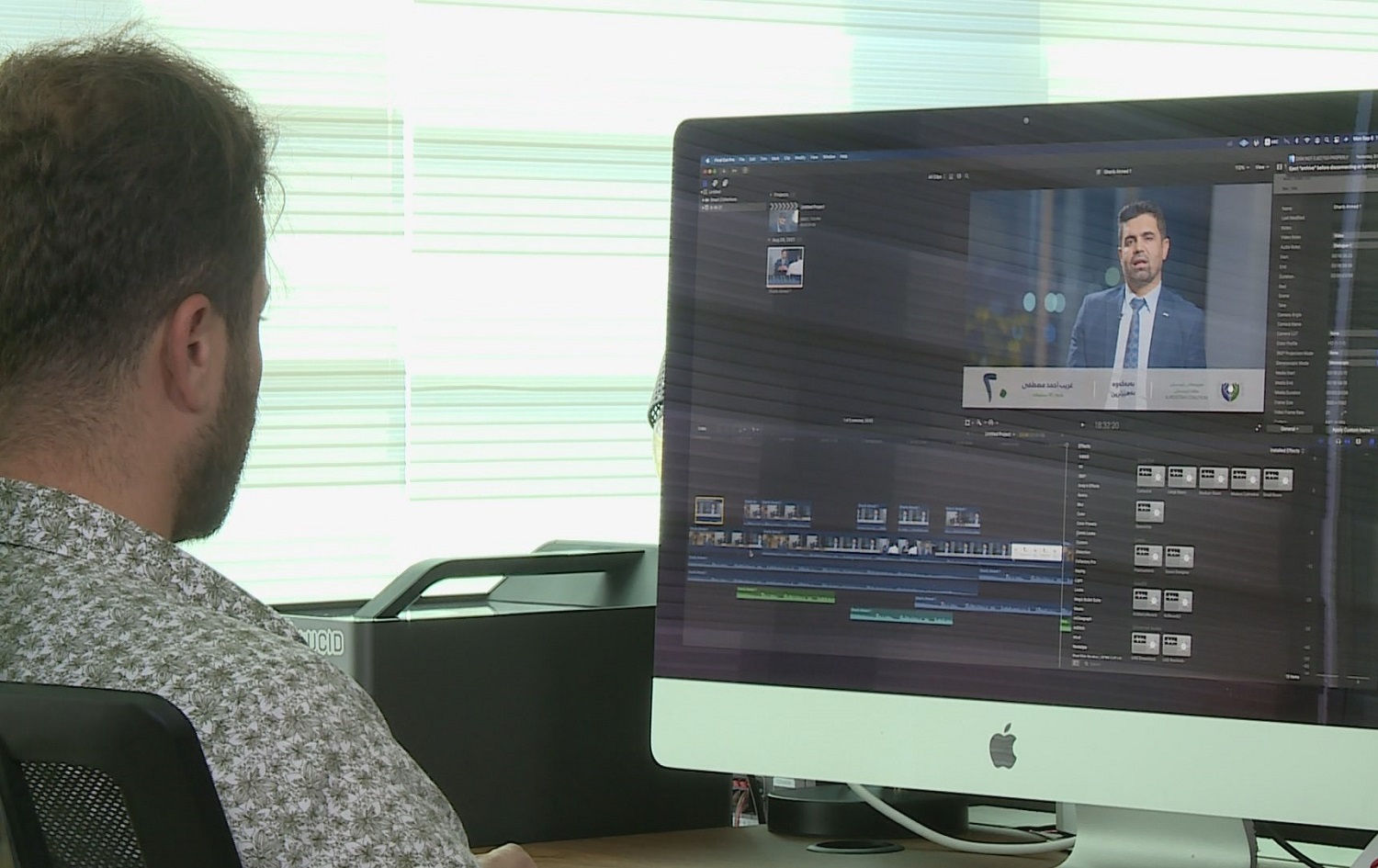ERBIL, Kurdistan Region - Political campaigning for Iraq's parliamentary elections has taken on a distinct character in the Kurdistan Region. Compared to previous elections when almost every inch of the capital of Erbil was covered with slogans and faces of politicians, this election season has seen candidates eschew traditional campaigning methods and turn to social media instead.
Karwan Anwar Jaf is the owner of one of Erbil's largest print houses. He said the demand for campaign materials during previous elections was more than his company could manage. "Some candidates even tried using wasta [nepotism or clout] to get us to print their posters."
This time around, however, he said, not a single candidate or political party has asked him to print material for their campaign. Most posters on the streets are those of independent candidates.
Layla Akram is the candidate for the Kurdistan Democratic Party (KDP) in Erbil. She still uses physical posters on the streets for her campaign, saying they help her constituents remember her ticket number. However, she insists that a successful bid for office must take on new technology to appeal to voters.
"Social media is way more important and has more impact on voters," she said.
Zeyad Rafiq, who also owns a print house in Erbil, has been luckier than others in his business. He has secured print deals from a number of political parties including the KDP, the largest party in the Kurdistan Region which has about 50 candidates across the country.
Despite receiving business from large, established parties, the businessman agreed there is a notable shift away from printed materials.
"There has been a drop of about 60 percent compared to previous elections," said Rafiq, claiming the decline is a direct result of Iraq's new electoral law, which decreased the size of electoral districts.
In the previous election in 2018, candidates targeted voters anywhere in the province, which at the time made up a single constituency, and therefore printed more flyers. However, with the new electoral law, candidates only target voters within their specific constituency and so need to cover less physical ground. Erbil province, for example, is divided into four constituencies.

Print houses may be the victim of this election cycle in Iraq, but companies who produce content for digital campaigning have greatly benefited from the ever-growing demand for social media advertisements.
Anas Esmael is a video editor working for a company in Erbil. He said video production taps into the potential of human interaction on social media platforms.
There is a difference between "a still image [of a poster], and a video,” he said, adding that candidates can reach more people and in easier ways using digital platforms than relying on street posters.
Voters will go to the polls on October 10.








Comments
Rudaw moderates all comments submitted on our website. We welcome comments which are relevant to the article and encourage further discussion about the issues that matter to you. We also welcome constructive criticism about Rudaw.
To be approved for publication, however, your comments must meet our community guidelines.
We will not tolerate the following: profanity, threats, personal attacks, vulgarity, abuse (such as sexism, racism, homophobia or xenophobia), or commercial or personal promotion.
Comments that do not meet our guidelines will be rejected. Comments are not edited – they are either approved or rejected.
Post a comment